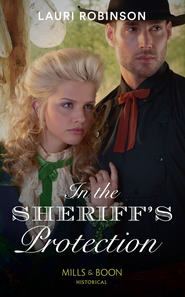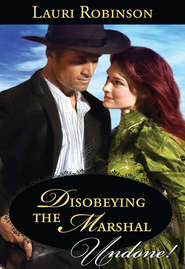По всем вопросам обращайтесь на: info@litportal.ru
(©) 2003-2025.
✖
Saving Marina
Настройки чтения
Размер шрифта
Высота строк
Поля
The solid wood, the sunshine filling the room, the smell of the chicken soup she’d set to simmer and repeating the statement several times gradually eased her torment. As things settled deep within her, for her fears never truly completely disappeared, she drew in a breath and then another.
When her body stopped trembling, she released her hold on the table. Although she’d never forget the savages who’d attacked her home, the scriptures told her to forgive. Forgiving something so heinous was rather impossible, but she’d discovered the Indians weren’t to blame as much as the evilness that had possessed them. The same evilness that now had the inhabitants of Salem Village massacring one another as unjustly as the Indians had her family. Which was why she was here, witnessing people betraying one another, sentencing neighbors to death, just as it was written in the Bible.
If she’d been given mystical powers when the hand of God had touched her, she’d have already stopped it. But no one had that kind of power. Not even witches. Yet no one but her seemed to understand that. Nor did they understand that the evil upon them wasn’t witches. It was a false prophet. A wolf in sheep’s clothing.
Being a chosen one was far from a blessing, but she’d never shied away from work and wouldn’t this time, either. Her father had told her she must save others, and she would. After finding Gracie, she no longer questioned why she’d been sent back to earth, why she’d been turned into a witch, and understood there was far more to do than just save the child. Despite what the reverend thought, the bargain she’d made with him included her. Only her. Not Gracie. He’d granted her the time she needed to make Gracie well, but she knew he’d done that instead of imprisoning her because he was afraid. Afraid of her and the powers he believed she possessed. She wished she did have mystical powers, but even without them, she would make sure Gracie was far from Salem when she turned herself over to the council as she’d promised.
With her spirit once again intact, Marina lifted a wooden spoon off the table and carried it to the large hearth, where she stirred the soup. Every two hours since bringing the child home, she’d fed Gracie tiny spoonfuls of broth. She’d feared the girl’s little stomach had been empty for so long it had forgotten its purpose, but each day Gracie ate a bit more than the previous and that gave Marina hope.
She turned away from the hearth. She should have suspected Richard Tarr would have black hair. Gracie must have inherited it from somewhere. It hadn’t been her mother. Sarah’s hair, from what Marina could remember, had been red. She’d seen the woman only a couple of times in the market square and truly only noticed her because of the child at her side. Gracie had been healthy then, with plump cheeks and chubby fingers, and, despite all her painful memories, Marina had somewhat fallen in love with the adorable little girl. Gracie’s big brown eyes, wide with wonder, reminded her so much of Gunther.
To recall that it had been only seven months ago when Gracie had been healthy, a happy child toddling behind her mother at the market square, seemed a bit unreal. So much had happened since then.
Uncle William apologized regularly for how unfriendly the village had become, but Marina had seen that before. How quickly people changed. How hatred arose. Yet it hadn’t been until she came face-to-face with the reverend that she saw the root of the calamities overtaking the community.
“Marina?”
She set the spoon back on the table and slowly made her way down the hall to the front room. With each step, she reminded herself there was no need to fear Richard Tarr. His long black hair, skin browned from the sun and chiseled features just made him look like an Indian. And his lack of facial hair. All men other than Indians had beards and mustaches.
Uncle William didn’t approve of what she’d done in order to save Gracie, but he did agree with saving the child. He claimed Captain Tarr was a fair man and would take responsibility for his child. Marina sincerely hoped so, for she questioned why Captain Tarr hadn’t taken responsibility of his daughter before now. Uncle William suggested he had, from the sea. That it was no different for a sea captain to go to sea than for a farmer to go to his field. Father or not. Husband or not.
“There you are, child,” Uncle William said from where he and Richard sat beside the window. “Captain Tarr...” With a nod her uncle corrected himself. “Richard, as he’s asked to be addressed, has several questions. Could you join us? I’m not able to answer those about Gracie’s health.”
She’d gladly voice her opinion that the captain could return in a few days. Grace would be able to travel then, could get away without the reverend or anyone else knowing. Uncle William, too.
Appreciative that her uncle’s home was not like most others, where women were expected to remain silent, never subjecting others to their opinions, Marina crossed the room. Her own home, that of her parents, had been full of bountiful conversations that included everyone. And laughter. Oh, how her brothers had laughed. Of all the things she missed, that might be the one she missed the most. Laughter. It was good for a person’s soul. Made life easier, lighter, even in the darkest of times.
Just as she was about to sit upon the squat stool Uncle William put his good leg upon while resting, the captain stood.
“Allow me,” he said.
Hesitant, Marina remained standing, eyeing him cautiously. He was very tall and muscular, and his stride was distinct, purposeful and sent a shiver up her spine. Confused as to what his purpose was at this moment, she watched him walk to the desk. There, he picked up the chair and turned, carrying it back to where she stood.
“Thank you, Captain,” Uncle William said.
Marina chose to remain quiet and sat down as Captain Tarr returned to his chair. She had to wonder, given the act he’d just performed, if he was like her uncle or more like the other men in the community. Very few in the village would permit Uncle William to request that she or any other woman participate in a conversation. That had been hard for her to accept when she’d first arrived, and questioning it had been enough to make her an outsider long before her true identity had been revealed.
“You’ll find our home a bit unorthodox compared to others in the area,” Uncle William stated as the other man sat back down. “Marina and I converse regularly. I like it that way and value what she has to say. Perhaps because I was always surrounded by mates. After the Golden Eagle ran ashore on a reef near the Bahamas, I found myself too old to repair her and traded her for this place. Of course, I kept my cargo,” he added with his gravelly laugh. “Wiggins Adams is who I got this place from.” He lifted a gray brow. “You heard of him?”
“Yes, I have,” Captain Tarr answered. “Captain Adams and I have crossed paths several times.”
“He promised it was a solid plot of land with a big house outside of Boston.”
“He didn’t lie,” Richard pointed out.
Uncle William chuckled. “No, he didn’t, but he didn’t tell me it was surrounded by Puritans until after he hauled me and all my belongings here. That was two years ago. If Marina hadn’t come to live with me a short time later, I may have given up on the place and gone back to the sea. Still might someday.”
Marina remained silent. As much as Uncle William spoke of returning to the sea, she knew it wouldn’t happen. Not without assistance. He’d never accept charity or pity, but his mind was outliving his body on land. He often repeated stories or rambled, and climbing the stairs to the second floor winded him. She’d taken apart his bed and carried it downstairs to the room off the hall leading to the kitchen to save him from climbing the stairs last winter. Convincing Captain Tarr her uncle wasn’t a washed-up old seaman, and to take him, along with Gracie, might not be an easy chore, but there wasn’t anything easy about her lot in life anymore.
A smile almost tugged at her lips because, for a brief second, she could hear her father’s voice proclaiming there wasn’t a task a Lindqvist couldn’t complete.
“Marina’s family had a bit of a mishap up in Maine,” Uncle William said. “She came to live with me winter before last. It was a cold snowy day when you arrived, wasn’t it, child?”
Marina agreed with a nod. Although she considered her home being attacked and her entire family killed more than a mishap, that was how Uncle William referred to it. As if calling it less than the calamity it had been would lessen it in her mind. Nothing could ever do that, but she never made mention of that to Uncle William, either. Perhaps because she wanted him to think she wasn’t trapped in the past. That she didn’t regularly recall the savage attack that caused her to be persecuted by neighbors until she had no choice but to flee. She told him she’d dreamed about him the night before his friend had arrived in Maine, but he hadn’t thought it significant. She did. It was the first time one of her dreams had come true.
If Captain Farleigh hadn’t arrived that snowy night, she’d have died again. Not by Indians or the wolves terrorizing the few chickens left in the barn, but at the hands of those who used to be friends.
Uncle William refused to speak about that, about what she’d told him, and she could understand why. It was hard for nonbelievers to accept. She’d struggled with it, too.
“Marina’s always been special. Always had a glow about her,” Uncle William said. “From the day she was born, she lit up the world.”
She’d heard that tale before, from her parents and brothers. If her family had known how different she was, what her destiny would be, she wished they’d mentioned it to her. A little preparation would have been helpful.
“Her grandpappy was my brother, and after having so many grandsons, he was beside himself to have a little girl to bounce upon his knee. I don’t know how I got along until she came to live here. Of course, things were different before. When Puritans weren’t set on killing one another.”
“Killing one another?” Richard shook his head. “The Puritans may have strong beliefs, but I don’t believe killing is one of them.”
Marina held her breath, curious about whether she would now learn why he’d deserted his family. An act she couldn’t fathom.
“Tell me, Richard,” her uncle said. “What do you believe?”
“About the Puritans?”
“Yes,” Uncle William replied.
Marina refrained from looking at the captain, even while her curiosity made it difficult. Her family, upon arriving in the New World from Sweden eighteen years ago, had settled along the costal shores of Maine. Communities there were far apart and needed every member’s participation in order to survive. Therefore, religious tolerance, of how or when their neighbors worshipped, was more accepted. Even though, in her case, religion hadn’t been the cause of her banishment, she couldn’t help wondering if it had been the reason behind him leaving his family.
“They are attempting to repopulate the world,” the captain said with more than a hint of disdain. “Will do anything to increase the population of every Puritan village up and down the coastline.”
“Indeed,” Uncle William said. “Are you one of them?”
“No.”
The response was so fast and stern, Marina couldn’t stop her gaze from snapping in his direction. She’d never questioned how her uncle had known who Gracie’s father was or how he knew where to find him. She, like most of the villagers, had believed he’d perished at sea.
As if he realized how harsh he’d sounded, the captain added proudly, “I’m of the Christian faith.”
“But your wife was a Puritan,” Uncle William stated.
Richard’s eyes were on her and boring in so deep Marina looked down at the floor and swallowed hard to ward off the shiver rippling over her shoulders. In the far recesses of his eyes, she’d seen pain and recognized it as something he didn’t want revealed. She didn’t like when that happened, when it was as if she could see into another person’s soul. No one should be able to do that.
“Yes, she was,” the captain said. “I refused to convert. Therefore, Sarah chose to remain with her family. I agreed to provide for them financially.”
“I know the life of a sea captain well,” Uncle William said. “Wives and families in ports all around the world.”
“Sarah was my only wife,” Richard replied coldly. “Grace is my only family.”
Marina could no longer remain silent. He’d opened the opportunity for her to ask a question that took precedence over all others. “Will you return to the sea when you and Gracie leave here?”











